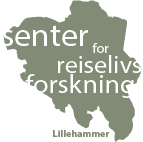‘The sharing economy, digital service innovation and restructuring of Innlandet: an analysis of the potential in the visitor industry and creative services’ (CreaTur) is a R&D-project funded by the Regional Research Fund Inland. The project examines the development of the sharing economy in Innlandet county in Norway. The projects focus is on factors preventing and promoting such development in a peripheral context. The project is limited to the tourism industry and aims to identify the potential the sharing economy represents for this industry.
Creatur was finished summer 2022. The results of the project are wrapped up and presented here (in Norwegian).
Some of the research results were presented at the XXII European Mountain Convention in october 2022 in Italy, find the presentation here: Smart Economy CreaTur presentation in English
Survey
The R&D-project CreaTur has several tasks as for example workshops with stakeholders and a pilot to investigate potential for new concepts of SE in rural areas (due summer 2021).
Summer 2020 we also conducted a survey to identify attitudes towards sharing hiking gear. Data was collected through a structured questionnaire. The survey covered a range of questions including background characteristics, hiking habits, attitudes toward borrowing and sharing hiking gear in general and more specific types of gear shared, and from whom or where the gear was shared/borrowed, and optimal timing for access to such gear. In addition, the respondents were asked about their last hike, the travel companion(s), means of transportation, and (in general) the use of sharing apps.
To trigger self-recruitment, the project partners spread the survey using different digital platforms, like homepages and social media like Facebook and Instagram. An obvious disadvantage of this method is the lack of control with population and respondents, and one must assume that only the most committed chose to respond. On the other hand, one may also assume that committed persons have extended hiking experience and knowledge of gear requirements. 523 respondents answered the survey, which will be supplemented with in-depth-interviews (in progress).
Preliminary findings
Preliminary findings suggest that about 80 % of the respondents would like to share hiking gear if possible, and (a bit surprising) about 70 % states that the Covid-19-pandemic do not affect their attitude toward sharing. The findings also suggest that older respondents are more reluctant to share gear (figure 1). Important arguments for sharing gear are related to environmental and economic benefits. The findings indicate no difference in whether the respondents live in an urban or in a rural environment when it comes to attitude towards sharing. Looking into how the respondents get access to the equipment, common access is through commercial renting services, like hiring skies at a ski resort. The data indicates little sharing between strangers. More common is accessing gear through family.
Preliminary results indicate that there is an underutilized potential in the market. About 80 % of the respondents are positive towards sharing hiking gear. Identified barriers are (among others) easy access to the gear and safety precautions like assurance that the equipment is available as planned and personalized. Confidence that the gear is maintained and in good condition is important among users. These preliminary findings favor actors who have (or have the opportunity to have) access to a large supply of gear, indicating B2P-sharing as a model to meet the demand for hiking gear with P2P-sharing as a supplement in the market. 
Contact
Interested to learn more about CreaTur? Or maybe you can contribute with experience or knowledge? Please don’t hesitate to contact project leader Merethe Lerfald
